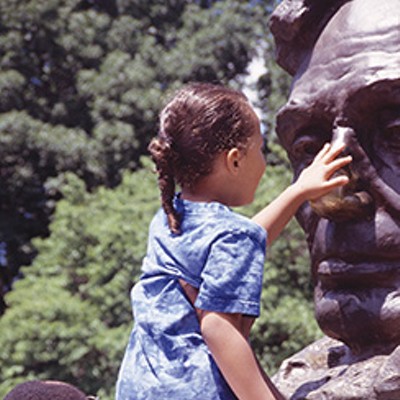Watch what you say; it can now be recorded without your knowledge or consent.
The Illinois Supreme Court decided this very thing last week in a pair of unanimous decisions that invalidated a state law requiring “two-party consent” to record conversations. The decisions bring Illinois in line with the majority of other states and further a lower court’s decision that allowed recording of police in public. However, at least one state lawmaker wants to restore part of the law to exclude certain situations from recording.
On March 20, the state Supreme Court released decisions in People v. Melongo and People v. Clark, saying recording conversations is a right under the First Amendment to the United States Constitution. In both cases, the defendants recorded members of the state court system – a judge, an attorney and a court reporter – and were later charged with crimes. Under state law, recording a conversation without consent is a class 4 felony punishable by up to three years in prison. Recording a public official in the course of his or her duties is a class 1 felony punishable by up to 15 years in prison.
Originally from the Republic of Cameroon in Africa, defendant Annabel Melongo was accused in 2006 of computer tampering after files from a supposed charity for which she worked disappeared from one of the organization’s computers. The charity, the Save-A-Life Foundation, has since disbanded and been accused of pocketing state grant money without performing any services, and its once influential founder Carol Spizzirri has reportedly moved to California and avoided answering questions by the Illinois Attorney General’s office.
When Melongo was charged with computer tampering, an official court transcript said she was in court on her arraignment date, indicating that she had been arraigned. Melongo claims she was not there, and in her attempts to get the official transcript changed, Melongo began recording her conversations with the court reporter and her supervisor. When she posted the recordings on her website, supposedly as evidence of a conspiracy against her, she was charged with three counts of eavesdropping and three counts of using information obtained with an eavesdropping device.
In a separate case, defendant DeForest Clark recorded his interactions with a judge and an attorney during a child support case in Kane County in 2012. Clark claimed no court reporter was present, and he wanted a record of his interactions with the court.
Both defendants argued that the state law barred them from exercising their right to collect information by recording conversations, especially those involving public officials engaged in their duties.
Although the Illinois Supreme Court typically combines similar cases like these, they instead chose to hear and decide both cases separately. In ruling the Illinois eavesdropping law unconstitutional, the court said the law was overly broad because it makes innocent conduct – the making of a recording – subject to prosecution.
“Individuals have a valid interest in the privacy of their communications and a legitimate expectation that their private conversations will not be recorded by those not privy to the conversation,” the court said in its Clark decision. “In addition, the fear of having private conversations exposed to the public may have a chilling effect on private speech. The eavesdropping statute thus legitimately criminalizes audio recordings in these instances. … However, the statute does not stop there. It criminalizes a whole range of conduct involving the audio recording of conversations that cannot be deemed in any way private.”
The court cited examples like a loud argument on the street, a political debate in a park and public interactions of police officers with citizens. The court seemed to suggest, however, that a more narrowly tailored law would pass muster.
The court’s ruling in Melongo’s case relies on its ruling in Clark’s case, which in turn relies on another unrelated case involving recording of police. In May 2012, a U.S. Court of Appeals found unconstitutional a state law that prohibited recording police performing their duties. Taken together, the three cases represent a major reversal in Illinois policy on recording private conversations. It remains to be seen, however, whether the cases will have any effect on recording audio of court proceedings in progress, which is currently prohibited except where specifically allowed under the Illinois Supreme Court’s rules.
Prior to the overturning of the police recording law, Rep. Elaine Nekritz, D-Northbrook, was pushing a bill that would have allowed recording of police in public. Now that the state’s highest court has overturned the entire eavesdropping law, however, Nekritz says she wants to see the Illinois General Assembly craft a replacement law that fits the court’s decisions but still protects privacy.
“We’re going to have to put together a legislative package that excludes public recording, when you’re in a public situation, but draws a line when there is an expectation of privacy,” Nekritz said. “That’s easily said, but it will be very difficult to do, I think, because there will be a whole slew of situations that are sort of gray, and it will be hard to find where there’s an expectation of privacy and where there isn’t.”
Contact Patrick Yeagle at [email protected].
Supreme Court strikes down recording law
[
{
"name": "Air - MedRect Combo - Inline Content 1",
"component": "11490391",
"insertPoint": "3",
"requiredCountToDisplay": "1",
"parentWrapperClass": "fdn-ads-inline-content-block"
},{
"name": "Air - MedRect Combo - Inline Content 2",
"component": "11490392",
"insertPoint": "7",
"requiredCountToDisplay": "5",
"parentWrapperClass": "fdn-ads-inline-content-block"
},{
"name": "Air - MedRect Combo - Inline Content 3",
"component": "11490393",
"insertPoint": "12",
"requiredCountToDisplay": "9",
"parentWrapperClass": "fdn-ads-inline-content-block"
}
]
Illinois Times has provided readers with independent journalism for almost 50 years, from news and politics to arts and culture.
Your support will help cover the costs of editorial content published each week. Without local news organizations, we would be less informed about the issues that affect our community..
Got something to say?
Send a letter to the editor and we'll publish your feedback in print!


















